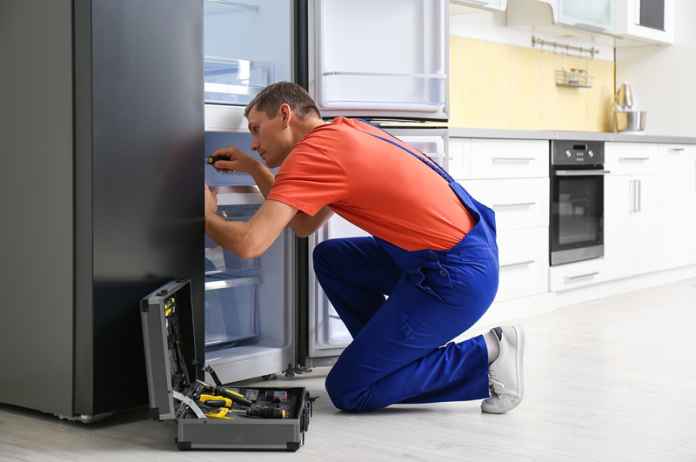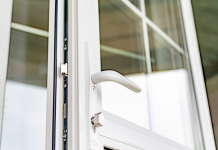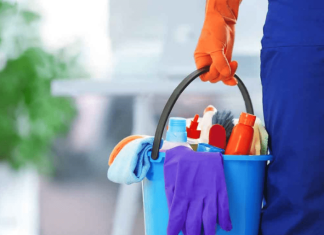Household appliances are essential components of our daily lives, providing comfort and convenience in countless ways. From keeping food fresh in the refrigerator to ensuring clean clothes from the washer and dryer, these devices simplify our routines. However, just like any other machinery, appliances require regular upkeep to function efficiently and extend their lifespan. Without consistent care, these essential household items may break down prematurely or consume excessive energy, leading to higher bills and inconvenient breakdowns. In this article, we’ll explore the benefits of regular appliance maintenance and provide practical tips on how to keep your appliances running smoothly for years to come.
Why is Regular Appliance Maintenance Necessary?
- Prolongs the Lifespan of Appliances
Regular appliance maintenance plays a crucial role in extending the operational life of your devices. Neglecting regular checks can lead to small issues compounding over time, causing mechanical failure or irreparable damage. For example, a refrigerator with clogged coils will struggle to maintain optimal cooling, overworking its components and shortening its life. Routine maintenance ensures that all parts are functioning as intended, reducing the risk of unexpected breakdowns and adding years to the appliance’s service life.
- Enhances Efficiency and Performance
When appliances are well-maintained, they operate at peak efficiency, consuming less energy and delivering better performance. For instance, a dryer with a clogged lint filter takes longer to dry clothes, increasing energy consumption and wear on the motor. Regular cleaning of filters, coils, and other components helps ensure that appliances are not overworking, thereby maintaining optimal performance and keeping utility bills lower.
- Reduces Energy Costs
An inefficient appliance uses more power to perform its functions, leading to higher energy bills. A simple cleaning or minor adjustment can restore an appliance to its original energy efficiency, helping to lower electricity consumption. Regular appliance maintenance, therefore, not only keeps your machines in good condition but also cuts down on energy costs over time.
- Prevents Major Repairs and Replacements
Appliance repairs can be costly, and in some cases, it may be more economical to replace an appliance than to repair it. By conducting regular maintenance, you can identify and address minor issues before they develop into significant problems that require expensive repairs or replacements. For example, replacing a worn-out belt in your washing machine can prevent damage to the drum or motor, saving you from a hefty repair bill.
- Ensures Safety in the Home
Faulty appliances can pose serious safety risks, such as fire hazards or electrical shocks. A buildup of lint in a dryer, a malfunctioning thermostat in an oven, or a leaking dishwasher can all lead to dangerous situations if not resolved quickly. Regular maintenance helps identify potential safety issues, ensuring that your appliances remain safe to use.
Key Areas to Focus on During Appliance Maintenance
While each appliance has its own unique maintenance needs, some common areas require regular attention across different types of devices. Here are a few general tips to keep your appliances in top shape:
- Clean Coils, Filters, and Vents
Clogged filters and vents can force appliances like refrigerators, air conditioners, and dryers to work harder, consuming more energy and causing premature wear. Clean the refrigerator coils at least twice a year, and regularly clear out dryer lint traps and exhaust vents. For HVAC systems, replace or clean filters every 1 to 3 months to ensure efficient airflow.
- Check for Leaks
Inspect appliances like dishwashers, washing machines, and refrigerators for any signs of water leakage. A small leak can lead to water damage or mold growth over time. Ensure that hoses and seals are in good condition and replace them if they show signs of wear or cracking.
- Tighten Loose Parts
Appliances with moving parts, such as washing machines and dryers, can experience loosening of screws, bolts, or belts over time. Periodically check these components and tighten any loose parts to prevent excessive vibrations or further damage.
- Lubricate Moving Parts
For appliances like garage door openers or those with motors, regular lubrication can prevent friction-related wear and tear. Refer to the user manual for guidance on which parts need lubrication and what type of lubricant to use.
- Examine Electrical Connections
Faulty or loose electrical connections can pose a serious hazard and affect appliance performance. Check for any frayed wires, burnt connections, or exposed parts, and have them repaired or replaced immediately by a qualified technician.
- Test Safety Features
For appliances equipped with safety features like pressure relief valves or thermal cut-offs, periodic testing is crucial. Ensure that these safety mechanisms are functioning correctly to prevent dangerous malfunctions.
Maintenance Tips for Major Household Appliances
Here are some essential maintenance tips to keep your major household appliances running smoothly and efficiently for years to come:
Refrigerators
- Clean the Condenser Coils: Dirty coils make it difficult for the refrigerator to cool properly. Clean them every six months using a brush or vacuum cleaner attachment.
- Check the Door Seals: Ensure the door seals are intact and creating a proper seal. Worn-out seals can cause cool air to escape, increasing energy usage.
- Defrost Regularly: For models without an automatic defrost feature, regularly defrost the freezer to prevent ice buildup.
Washing Machines
- Inspect Hoses: Check for any cracks or signs of wear on water supply hoses and replace them every three to five years.
- Use the Right Detergent: Use high-efficiency (HE) detergent in HE machines to avoid a surplus of suds that can cause wear and tear.
- Clean the Drum and Gasket: Run an empty wash cycle with vinegar or a specialized cleaner to eliminate odors and prevent mold growth.
Dryers
- Clean the Lint Trap: Clean the lint trap after every use to maintain airflow and reduce fire risk.
- Inspect the Exhaust Vent: Check the vent for blockages every few months to ensure proper ventilation.
- Wipe the Interior: Clean the interior drum to prevent lint or detergent residue from sticking to clothes.
Dishwashers
- Clean the Filter: Remove and clean the filter regularly to prevent food particles from clogging the machine.
- Check Spray Arms: Ensure that the spray arms are clean and free from blockages to achieve optimal washing performance.
- Run a Cleaning Cycle: Use a dishwasher cleaner once a month to remove hard water deposits and residue.
Ovens and Stoves
- Clean the Burners: Remove and clean burner grates and drip pans to prevent food buildup.
- Check the Oven Door Seal: Ensure the door seal is tight and free from cracks to prevent heat loss.
- Run a Self-Cleaning Cycle: If your oven has a self-cleaning feature, use it as recommended to remove baked-on residue.
Regularly Maintaining Appliances
Maintaining household appliances is an investment in their longevity, performance, and safety. By establishing a regular appliance maintenance routine, you can prevent costly repairs, reduce energy consumption, and extend the lifespan of your machines. Remember that while many maintenance tasks can be performed by homeowners, some jobs require the expertise of a professional. When in doubt, consult your appliance’s user manual or hire a qualified technician to handle more complex issues.
Regular appliance maintenance not only saves money but also provides peace of mind knowing that your household is running efficiently and safely. Start a maintenance routine today to keep your appliances in top condition for years to come!














